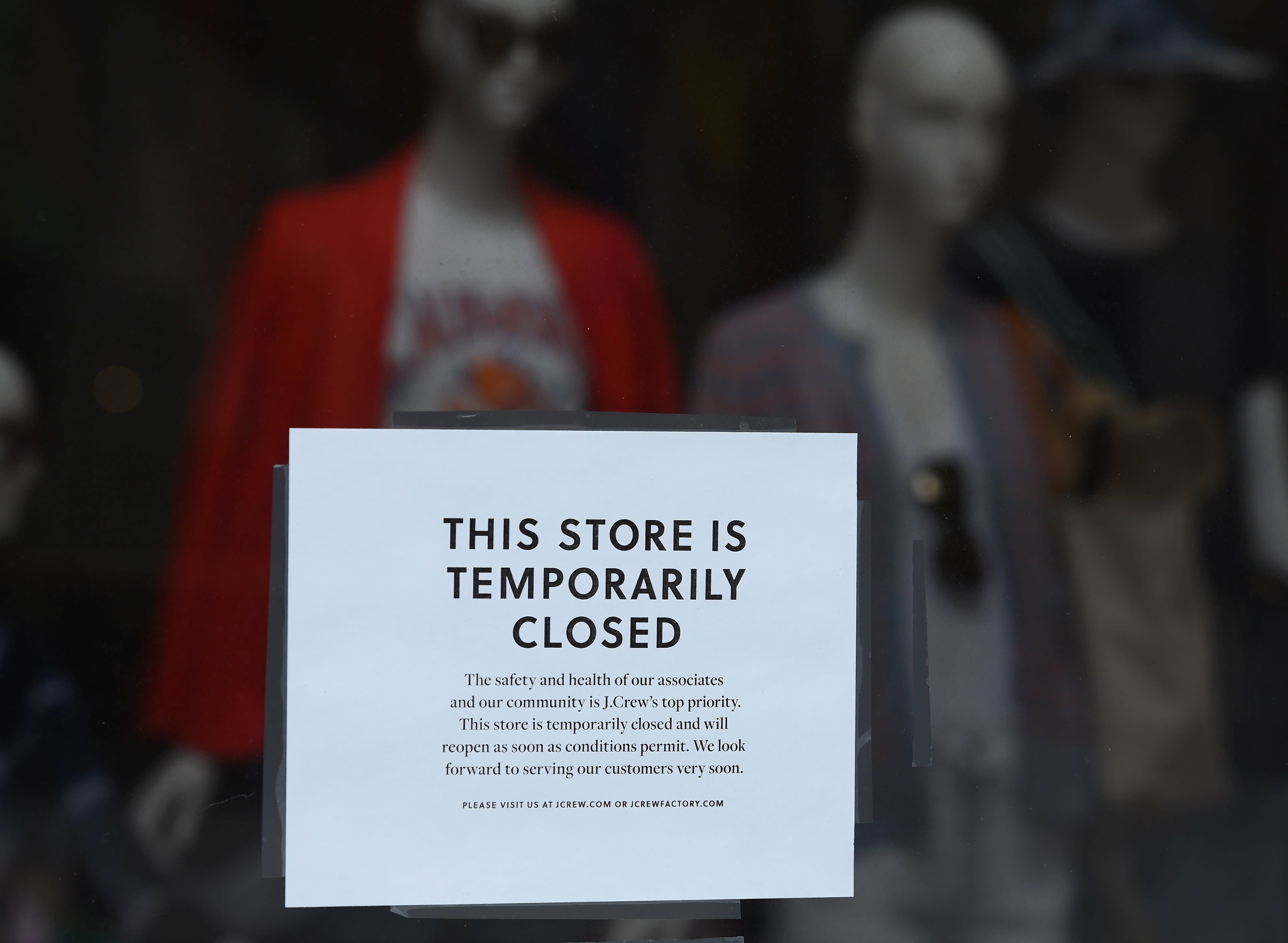A sign is seen at the window of a closed J.Crew store near Rockefeller Plaza on May 4, 2020 in New York City.
ANGELA WEISS/AFP via Getty Images
Roughly 14% of business owners who received a loan through the Paycheck Protection Program expect to lay off workers once they deplete their funds, according to a survey published by the National Federation of Independent Business.
The finding comes as lawmakers debate the necessity and contours of another round of federal relief measures for individuals and businesses, and points to the potential fragility of the U.S. economic recovery absent additional aid.
The Paycheck Protection Program, which was created by the CARES Act in late March, offers forgivable loans to small businesses.
‘A PPP story’
White House officials credited the program for 2.5 million Americans returning to work in May — a remarkable and unexpected turnaround after nearly 21 million people lost their jobs the month prior amid a shutdown of broad swaths of the U.S. economy.
As a condition of receiving full loan forgiveness, the program requires businesses to rehire furloughed or laid-off workers.
“The PPP, I think, led directly to the surprising, wonderful jobs number we had last Friday, where more or less 3 million people who were temporarily laid off or furloughed went back into work in the labor force,” Larry Kudlow, director of the National Economic Council, told CNBC on June 10. “That’s a PPP story.”
Despite states beginning to gradually reopen their economies, many business owners say they’ll likely need more aid to weather the economic recession.
More from Personal Finance:
Can I get unemployment after refusing a job?
Colleges cut programs in face of budget shortfalls
Is there a need for another stimulus check?
Nearly half — 47% — of entrepreneurs who received a PPP loan or a loan through another relief measure, the Economic Injury Disaster Loan program, anticipate needing additional financial support over the next 12 months, according to the NFIB survey.
About 30% of business owners reported sales as of mid-June that were less than half what they were pre-pandemic, according to the business federation, a trade group.
Businesses want more aid
More than half of survey respondents — 56% — said they’d likely need $50,000 or less over the next year, while 27% anticipate needing more than $100,000.
If they don’t receive extra aid, the employment rebound seen in May could prove short-lived.
About 14% of PPP loan recipients anticipate laying off workers after depleting their funding, according to the survey.
About half said they’d lay off between one and two workers, and 31% said they’d lay off three to five. About 12% said they’d lay off more than 10 workers.
Though it improved slightly last month, the 13.3% unemployment rate in the U.S. is the country’s highest since the Great Depression in the 1930s.
Businesses may start running out of loan money around the time that enhanced unemployment benefits, in the form of an extra $600 a week for jobless workers, expires at the end of July.
That would potentially send household income for these workers off a cliff while many may have already spent down the stimulus checks the federal government sent them in recent weeks.
The Small Business Administration, which administers the Paycheck Protection Program, has approved $515 billion of loans to nearly 4.7 million businesses.
The scope of a future coronavirus aid package is unclear.
Democrats are pushing for additional financial aid. The House passed a $3 trillion relief package, the HEROES Act, last month. Republicans have advocated for more of a wait-and-see approach, and have said they want a slimmer and more targeted aid package.
At the same time, the federal government recently enacted legislation granting more flexibility to PPP loan recipients, by extending the time frame for spending their funds and reducing the amount spent on payroll, for example.
